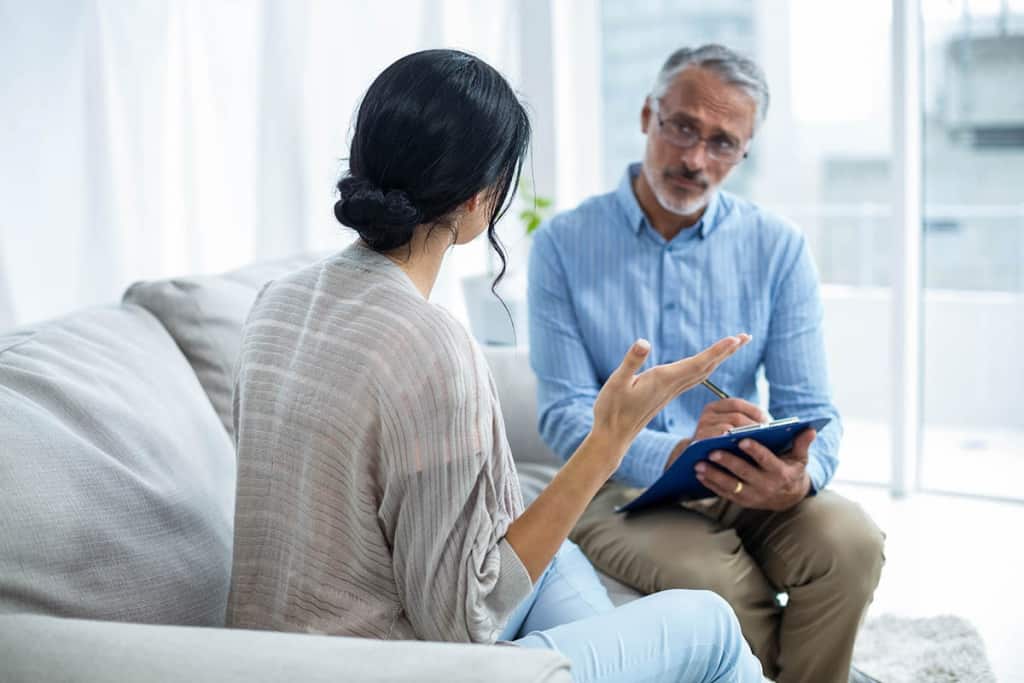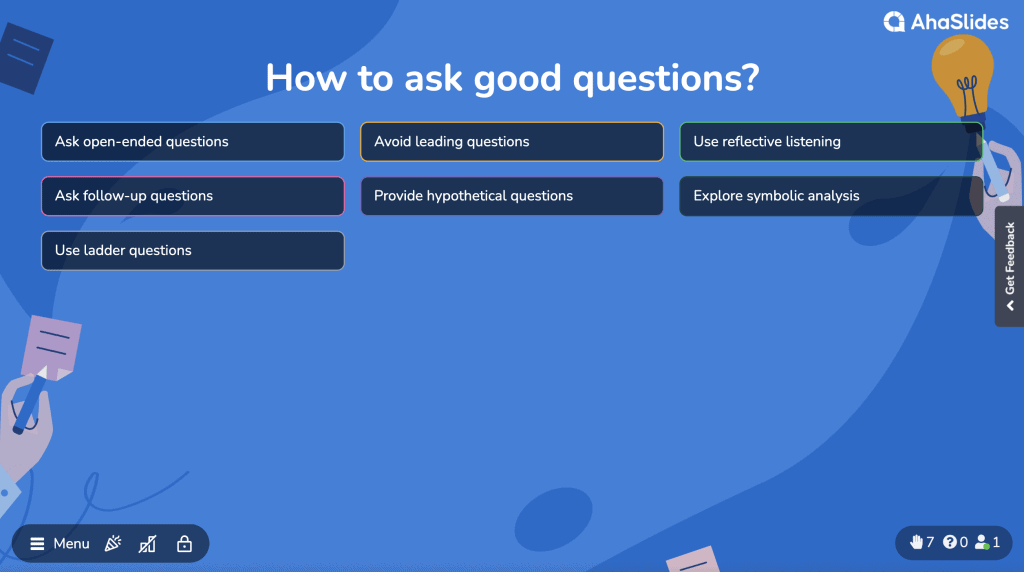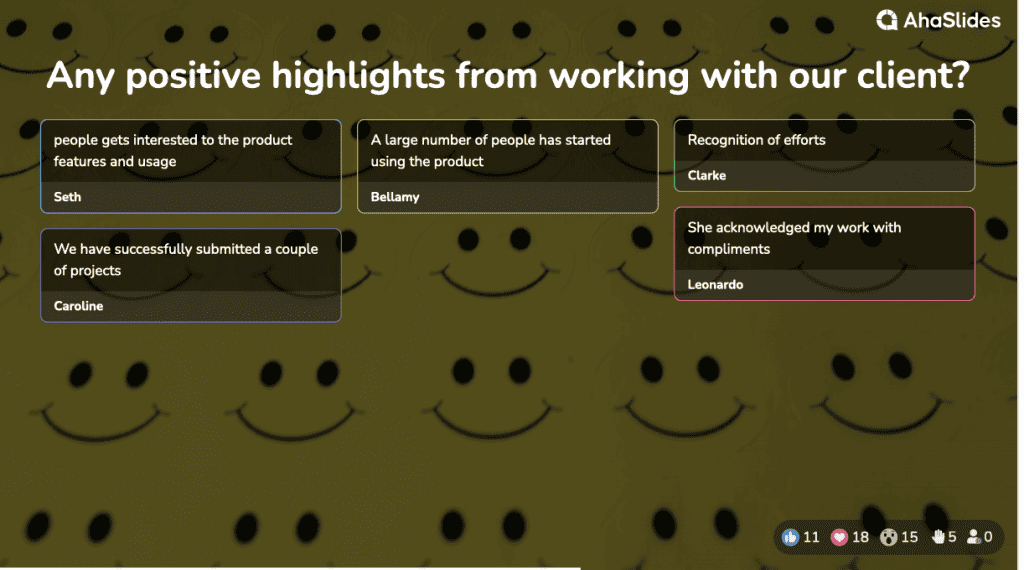Wondering how to ask questions properly? Asking good questions requires more effort than you think.
Let's face it, starting conversations with strangers can be daunting. Just like Jenny at a party, many of us struggle to find the right questions. This applies not only to social settings, but to various aspects of life where initiating a conversation is important.
In today's world, many of us find ourselves unsure of how to ask effective questions. Whether it's following up on interview results, checking in on someone's well-being, or simply sparking a conversation, the ability to ask questions is important.
This article delves into the power of asking questions, what makes a good questioner, and explores practical strategies to improve your questioning techniques.

Table of Contents
- What Makes Good Questions?
- Who is Good at Asking Questions?
- How to Ask Questions in Certain Scenarios with a Winning Strategy
- 7 Effective Questioning Techniques
- How to Ask Questions Effectively: 7 Best Tips
- Key Takeaways
- Frequently Asked Questions
What Makes Good Questions?
You might think asking a great question starts by looking for great answers. But first and foremost, a clear and concise question is a must. The question itself should start with getting right to the point so that the person you're talking to won't get confused and understand exactly what you mean.
Secondly, a good question is relevant. It should be related to the topic or subject being discussed. Asking irrelevant questions can derail a conversation or presentation and waste everyone's time. Therefore, it's crucial to ensure that your question is relevant to the topic at hand.
Thirdly, a good question is open-ended. It should encourage discussion and allow for a variety of answers. Closed-ended questions, which can be answered with a simple "yes" or "no," can stifle conversation and limit the information you receive. Open-ended questions, on the other hand, invite people to share their opinions and ideas, leading to a deeper and more productive discussion.
Finally, a great question is one that engages the audience by being interesting and inspiring curiosity. Such questions have the power to create a positive and stimulating environment, where people are encouraged to actively participate in the discussion and share their unique insights and ideas. By asking engaging questions, you can foster a more productive and collaborative dialogue, leading to a deeper understanding of the topic at hand.
Who is Good at Asking Questions?
For some people, questioning comes easily, and for others, it is challenging. Have you ever wondered why some individuals excel at asking questions while others struggle with it? It turns out that the ability to ask great questions is a valuable skill that not everyone possesses.
For example, professionals like psychologists are well-known for their ability to ask thought-provoking questions that inspire their clients to think more deeply about themselves and their lives. But what makes them so good at it?
Take it as a strategic approach, and check out several characteristics that define a person as a good questioner:

An ability to listen actively and empathetically. By paying close attention to what others are saying, you can ask follow-up questions that clarify and deepen their understanding of the audience's situation.
An ability to ask probing questions. Probing questions are those that challenge assumptions and encourage the person being questioned to think critically about their beliefs and perspectives. A good question-asker knows how to ask probing questions in a way that is non-judgmental and supportive, which can help stimulate reflection and promote personal growth.
Bravery in questioning leads to deeper insights, understanding, and positive change. It requires stepping outside of one's comfort zone with curiosity and an open mind, balancing bravery with sensitivity and respect for the person being questioned.
How to Ask Questions in Certain Scenarios with a Winning Strategy
What is the hardest time to ask questions in your life? If you are in the following situations, you can take it as a source of inspiration. If not, don't worry, all the techniques you need for how to ask questions are in the next sections.
How to ask questions - How to ask someone to talk to you
If you're looking to ask someone to talk to you, it's important to be clear and direct while also being respectful of their time and boundaries. Here are examples that you can use in your own circumstances.
- "I'm hoping we can have a conversation about [specific topic]. Would you be open to talking about it with me sometime soon?"
- "I'd really appreciate your insight and perspective on [specific issue]. Would you be willing to chat with me about it when you have some time?"
How to ask questions - How to ask for feedback
As an important part of personal and professional growth, we often ask for feedback from people around us, from friends, family, co-workers, and managers. And we all want to get an honest and open answer, here is an example to ask:
- From a friend or family member: "Hey [Name], I value your opinion and was hoping you could give me some feedback on the new project I'm working on. Do you think there's anything I could be doing differently or better?"
- From a customer or client: "Dear [Client Name], we're always looking for ways to improve our services and would love to hear any feedback you have on your recent experience with us. Is there anything you particularly liked or disliked? Any suggestions for improvement?"
How to ask questions - How to ask the right questions in business
If you want to ask the right questions and smart questions in business, it is crucial to make informed decisions and achieve successful outcomes. Here are an example of asking questions in the workplace:
- Can you provide examples of how this solution has worked for other clients in similar situations?
- What metrics do you use to measure the success of this project?
How to ask questions - How to ask a question professionally via email
When asking a question professionally in an email, it's important to be clear, concise, and respectful. A good example of asking questions professionally via email is as follows:
- Clarification question approach: Thank you for sending over the report. I have a quick question regarding [specific section]. Could you please clarify [specific part of the report] for me?
- Informational question: I hope this email finds you well. I am reaching out to request more information on [topic]. Specifically, I am curious about [specific question]. Could you please provide me with more details on this matter?
How to ask questions - How to ask someone to be your mentor
Asking someone to be your mentor can be intimidating, but it can also be a valuable opportunity to learn and grow from someone with more experience. Here is an example of how to ask someone to be your mentor:
- Direct approach: "Hi [Mentor's Name], I've been really impressed with your work and I would love to learn from your experience and expertise. Would you be willing to be my mentor?"
- Seeking guidance: "Hi [Mentor's Name], I'm at a point in my career where I could use some guidance from someone with more experience. I really admire your work and I think you could be a great mentor. Would you be open to the idea?"
How to ask questions - How to ask if someone is ok or not
If you are concerned about someone and want to ask if they are okay, it's important to approach the conversation with sensitivity and care. The following examples might be useful to you:
- I noticed that you've been quiet lately. Is there anything on your mind that you'd like to share?
- You look like you've been going through a tough time. If you need someone to talk to or just want to vent, I'm here for you.
R
How to ask questions - How to request a job interview
Asking for a job interview requires a tactful and professional approach, demonstrating your eagerness and competence for the position. To help you make a great impression, below are some creative and effective ways to request a job interview:
For example:
I had the pleasure of meeting you at the [Event/Networking Meeting] last week, and I was impressed by your insights about the [Industry/Company]. I am writing to express my continued interest in [Company], and to request an interview for any relevant open positions.
I believe my skills and experience would be a strong fit for [Company], and I would welcome the opportunity to discuss my qualifications further with you. If you would be willing to schedule an interview with me, please let me know what times are convenient for you. I am available to speak by phone or in person, whichever is most convenient for you.
7 Effective Questioning Techniques

There are cases where you have to leverage different questioning techniques to look for what you want. If you still don't know how to ask questions, here are several productive questioning techniques that you can use in both formal and informal contexts:
#1. Ask open-ended questions: Open-ended questions encourage the person to share more information and can help to elicit deeper insights and understanding. These questions often start with "what," "how," or "why."
#2. Avoid leading questions: Leading questions can bias the response and limit the person's ability to share their true thoughts and feelings. Avoid questions that suggest a particular answer or assume a certain perspective.
#3. Use reflective listening: Reflective listening involves repeating or paraphrasing what the person has said to show that you have heard and understood their perspective. This can help to build trust and create a safe space for open communication.
#4. Ask follow-up questions: Follow-up questions can help to clarify information, explore a topic more deeply, and show that you are actively engaged in the conversation. These questions often start with "Can you tell me more about..." or "What do you mean when you say..."
#5. Hypothetical questions: These types of questions ask respondents to imagine a hypothetical situation and provide a response based on that scenario. For example, "What would you do if...?"
#6. Symbolic analysis: Questions that focus on logical opposites, and attempt to learn what it is not, questions include "without", "not", "no longer",... can be used to explore different options and scenarios.
#7. Laddering can be a powerful tool for exploring underlying beliefs and values and can help you better understand the motivations and perspectives of others. It can be particularly useful in marketing and sales.
How to Ask Questions Effectively: 7 Best Tips
Asking questions is an essential part of effective communication and gaining knowledge. However, it's not just about asking any question; it's about asking the right question at the right time and in the right way. So, how can you ask questions that leave a positive and lasting impression on others? Or what is a polite way to ask questions?
Create an engaging, honest and open environment: Effective communication goes both ways. AhaSlides’ Open-ended platform will ignite buzzing minds where people can ping-pong ideas of each other, submit, and vote for the best ones.

Define your objectives: Before asking any questions, be clear about your objectives and what information you need to achieve them. This will help you focus your questions and avoid wasting time on irrelevant topics.
Avoid assumptions: Don't make assumptions about what you think you know or what you think the other person knows. Instead, ask open-ended questions that encourage the other person to share their thoughts and insights.
Be specific: Ask specific questions that can be answered with clear, concise information. Vague or overly broad questions can lead to confusion and unproductive discussions.
Listen actively: Asking the right questions is only half the equation. You also need to actively listen to the responses you receive. Pay attention to the speaker's tone, body language, and the nuances of their responses to gain a deeper understanding of their perspective.
Frame your questions positively and constructively: Avoid using negative language or accusatory tones, as this can put the person on the defensive and discourage them from engaging in a productive conversation.
Stay focused: Stay focused on the topic at hand and avoid getting sidetracked by unrelated issues. If you need to address a separate topic, schedule a separate conversation to discuss it.
Key Takeaways
You might have your own answers and decisions right now on how to ask questions. It is totally certain that the next time you are in a situation that needs to start questioning, you might not struggle anymore.
Frequently Asked Questions
What is a good way to ask a question?
Ask one question at a time and give context if needed. Being considerate, engaged and focused on understanding shows in how you ask.
What are 10 questions to ask?
1. What do you like to do for fun?
2. What is your favourite movie/TV show?
3. What is something you learned recently?
4. What is your favourite thing about your job/school?
5. What is your favourite memory from childhood?
6. Where is your dream vacation destination?
7. What is something you are really good at?
8. What is one thing you want to accomplish this year?
9. What is your favourite weekend activity?
10. What is something interesting happening in your life right now?
How do you ask smart questions?
Ask why or how questions to gain deeper insights, not just factual answers. "Why do you think that worked?" "How did you approach solving that problem?". Reference the speaker's comments or ideas to show you're actively listening. "When you mentioned X, it made me think of Y question".
Ref: HBYR








